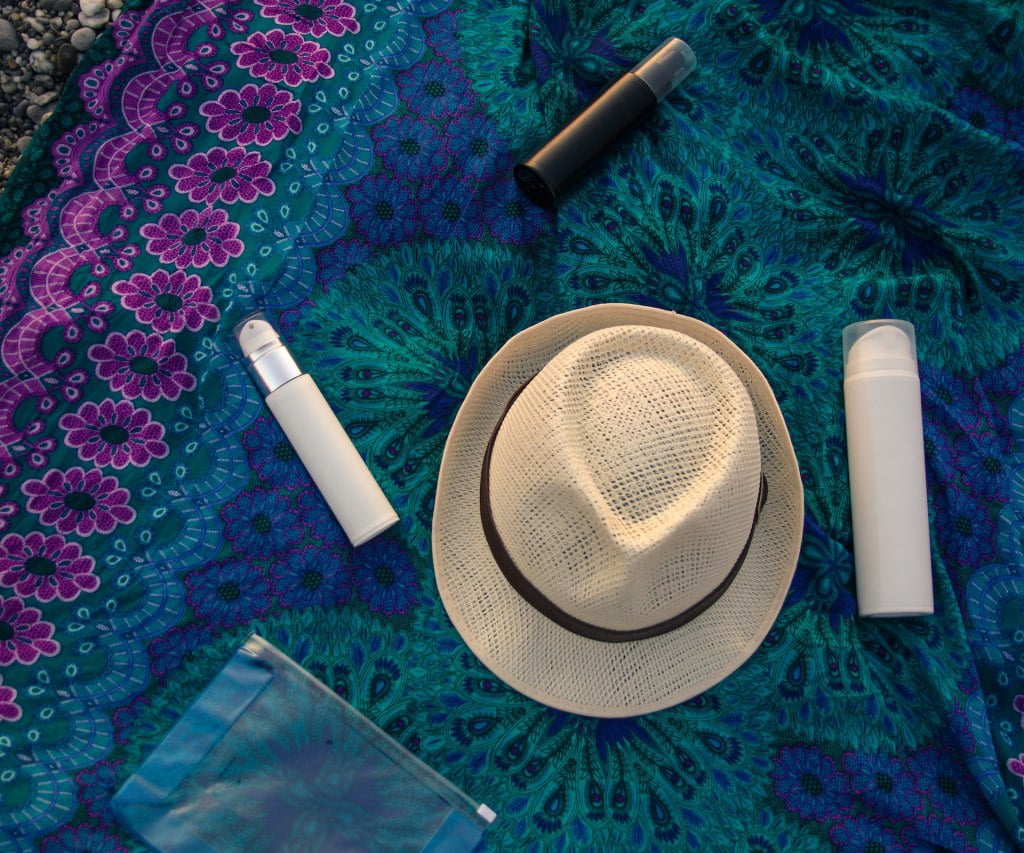The sun is the leading cause of skin cancer and aging, but you can help yourself by wearing SPF daily. With the right sunscreen, you can prevent sun damage, including skin cancer and premature aging. There are so many different types of sunscreen on the market that choosing the right one can be a big decision.
Along with protecting against skin cancer, sunscreen is a must-have for people looking for long-lasting makeup. For most people, wearing SPF every day is good practice. Before investing in a bottle or tube of sunscreen, you should know the benefits, drawbacks, and best practices of wearing sunscreen daily. Here are seven reasons you should wear SPF on your face daily.
1. Prevent Premature Aging
Sunlight has been shown to age the skin and will damage the skin-renewing cells deep in the skin. You can help prevent this by applying sunscreen daily on exposed areas of your body, including your face, chest, hands, and legs. The type of sunscreen you choose should be based on how much protection you need to prevent aging and complications with aging, including wrinkles.
Sunscreen can help prevent the early signs of aging, the so-called age spots. Sunscreen shields your face from harmful rays, reducing your risk for these spots. The spots are formed by too much sun exposure, which causes the skin to discolor.
2. Prevents Cancer
The American Cancer Society recommends that everyone over six months wear sunscreen with a minimum SPF level of 30. This is even more important for those with fair skin who burn easily. A person with pale skin will burn in about 10 minutes if exposed to the sun without protection. Those with fair skin should use sunscreen with an SPF greater than 30.
Consistent, moderate sun exposure can cause skin cancer, including melanoma. You can help prevent this by using sunscreen daily on your body and face. This can reduce your risk of developing deadly cancer, rising in recent years. Even if you never plan to visit a sunny beach or spend lots of time outdoors, it is still important to apply sunscreen every day.
3. Moisturizes Your Skin
Some sunscreens also can help moisturize your skin. They are specifically designed to help protect sensitive skin from sun damage and still moisturize. Some of these moisturizing sunscreens contain hyaluronic acid, which bonds water molecules to keep your skin hydrated for up to 24 hours. For instance, Mastiha skin care moisturizer comes with SPF, which helps protect the skin from the sun’s rays.
Moisturizers can also help prevent the appearance of some lines. The skin’s acidity changes when the sun is out, and this causes wrinkles and bags. Regular moisturizers can help treat these problems. Moisturizers can help maintain your skin’s moisture level, which helps to prevent aging.
4. Protects Against Inflammation
UV-induced inflammation exacerbates aging and skin cancer, so preventing inflammation is vital to your face’s health. Some scientists consider chronic sun exposure the main cause of photoaging in contrast to UVB-induced acute damage, which is responsible for half of all skin cancers. A broad-spectrum sunscreen can protect your skin from inflammation and reduce the chance of developing skin cancer.
UV radiation can cause an allergic reaction in some people, especially those with fair skin who burn easily. This allergic reaction can lead to redness, swelling, and even skin rashes on the face. The reaction can last several days; some people may need treatment if their skin becomes infected.
If you notice a rash after sun exposure, wash your face with cool water and apply a moisturizer with SPF. This helps reduce the redness and swelling from the rash, reducing pain and discomfort. Sunscreen is important for those who often experience an allergic reaction to sun exposure. You should use sunscreen daily, especially if you know you are sensitive to heat or sunlight.
5. Prevents Sunburn
You may have thought tanning was healthy, but that’s not true. Even though the sun makes you feel good when you’re in it, overexposure to UV rays can lead to harmful conditions like skin cancer. Instead of hitting the tanning bed, take a much safer approach by protecting your face with sunscreen daily. The best types of sunscreen are those with broad spectrum protection from UVA and UVB rays. Using sunscreen will reduce your chances of getting sunburn.
Sunburns are an immediate sign of overexposure, so you need to take action immediately.
You can also prevent sunburn by wearing sunglasses, long sleeves, and hats that cover your face. If you still need a little protection, you can use a UV protective facial mattifier to help prevent sunburn and premature aging. The facial moisturizer absorbs the ultraviolet rays and stops the formation of dark spots, wrinkles, and spots on your skin.
6. Maintains Your Skin Tone
Some people use sunscreen every day to keep their skin tone even. Keeping your skin tone in check will help prevent dark spots, sunburns, and wrinkles. Some people use sunscreen on their face as a treatment to keep their skin in good condition. You should apply sunscreen generously to all body areas, including the face and ears. The best time to apply sunscreen is about 30 minutes before exposure. Pat the lotion on your skin, and don’t forget to cover your face and ears. Apply sunscreen at least every two hours while in the sun, especially if you are sweating.
Using a moisturizer with SPF is a great option for those who want to maintain their skin tone. These products help moisturize your face while protecting against sunburns and premature aging. They can also help reduce redness when used regularly. Your skin tone will look healthy and cared for when using an SPF moisturizer.
7. Prevents DNA Damage
UV rays also attack the DNA in your skin, which causes damage. This damage can be reversed when you use a broad-spectrum sunscreen that protects against UVA and UVB rays. These harmful rays break down the DNA and weaken the skin, so it is especially important to wear sunscreen daily to protect your face from UV damage. Many studies have shown that UV exposure can cause DNA damage and skin aging. This can lead to highly visible signs of aging, especially in the sunless areas of your face.
For instance, your skin may tan if you spend a lot of time in the sun. As this happens, your DNA becomes damaged, and your skin ages more quickly. UV damage causes premature aging and dark spots but can also cause cancer. If you overexpose yourself to the sun without sunscreen and develop any signs of skin damage, visit an aesthetician and ask them about sunless treatment options for your face.
Conclusion
Sunscreen is the number-one preventative measure that you can take against harmful UV rays. You should use it daily or at least every two to three days, and when you do, you should choose a broad-spectrum sunscreen with an SPF of at least 30.
Several types of sunscreen include mineral sunscreens, physical sunscreens, and chemical sunscreens. Choose the one that best suits your skin type and facial features. The SPF level is the most important factor when choosing a sunscreen. However, you should pay attention to the other features as well.
Once you have decided on sunscreen, it is time for application. Apply sunscreen evenly over bare skin or clothing as directed by your doctor or physician.
See your doctor or aesthetician for treatment if you experience skin damage after overexposure to UV rays. Treatments for the skin include chemical peels and lasers. They will help correct any damage caused by UV exposure and help restore your skin tone.


